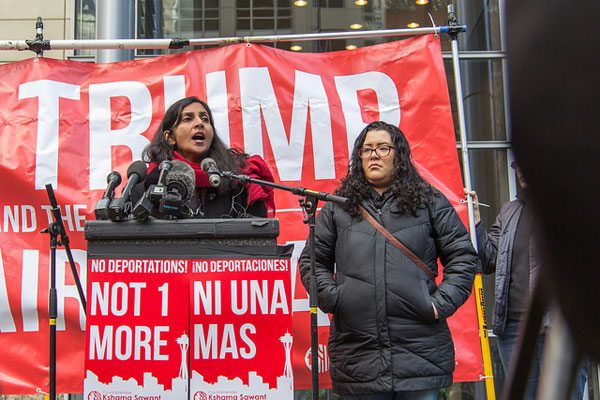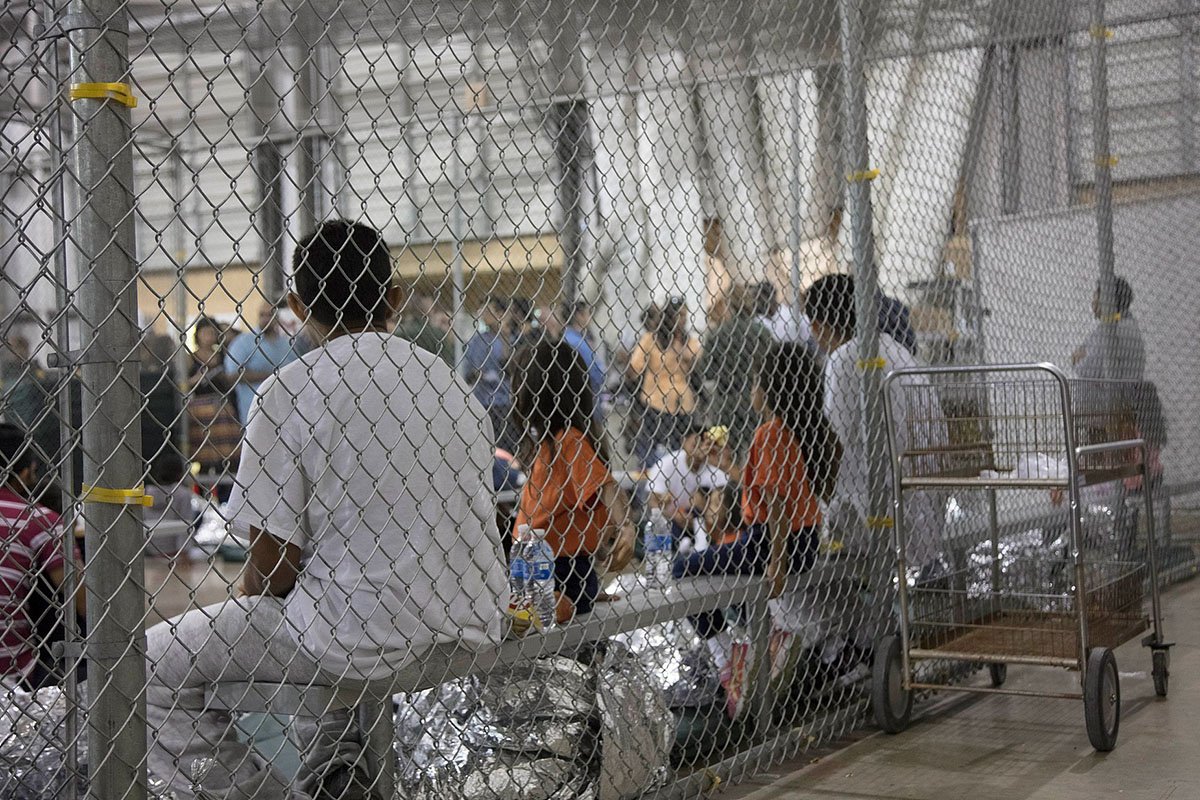
January 9, 2018; New York Times
Judge William Alsup of the Federal District Court in San Francisco ruled last night that the DACA program must be maintained on a nationwide basis, thus enjoining the administration from ending the program as legal challenges progress. For now, registered “Dreamers” will be allowed to remain in the United States, though no new applications will be accepted.
Advocates contend, however, that this should not be viewed as a win in the highly volatile atmosphere that was demonstrated earlier in the day in an uncharacteristically televised bipartisan meeting between congressional lawmakers and the president. In that meeting, the president appeared to, as the Atlantic describes, “take every conceivable position” on DACA, and, indeed, on almost all of the immigration measures being pursued by the GOP.
He backed a “clean” bill to extend DACA, protect the so-called “Dreamers,” and bolster border security, absent the more controversial immigration measures conservatives want; then, he said he’d “take the heat” for a more comprehensive immigration overhaul along the lines of what Trump had denounced as a candidate in 2016; later, he demanded that Congress fund the southern border wall as part of the initial DACA deal, reinserting the wrench that has held up the immigration talks for weeks.
Finally, Trump said he’d sign whatever immigration bill Congress could send him. “I’m not saying I want this or I want that. I will sign it,” he told the group.
In September, President Trump announced he would end the Obama-era program, which has allowed 700,000 young immigrants brought to the country by their parents to live, work, and go to school in the United States. The Trump administration contended the program was illegal, but Judge Alsup did not agree, ruling that the secretary of the Department of Homeland Security has the necessary authority to provide the temporary protections afforded by the program.
In what has now become a familiar element of lawsuits against this administration, the judge also cited the president’s own tweets on the issue, which seemed to contradict the administration’s contention that the ending of the program was in the public’s best interest. In fact, in September, when the edict was made, the president wrote, “Does anybody really want to throw out good, educated and accomplished young people who have jobs, some serving in the military? Really!”
Sign up for our free newsletters
Subscribe to NPQ's newsletters to have our top stories delivered directly to your inbox.
By signing up, you agree to our privacy policy and terms of use, and to receive messages from NPQ and our partners.
The administration could, of course, appeal the judge’s ruling, but immigration advocates worry that the unique focus on Dreamers’ temporary status will in the long run harm the larger cause of protecting immigrants. Camille Mackler, the director of immigration legal policy at the New York Immigration Coalition, says that clean legislation is needed to protect Dreamers while not endangering other undocumented immigrants.
“This is not a win for us,” Ms. Mackler said. “We’re obviously glad that this is going to provide some relief, but what we really need is a clean Dream Act.”
Sen. Dianne Feinstein (D-CA) advocated just that in yesterday’s meeting, saying that Congress should immediately pass a clean DACA bill then pivot to a more comprehensive proposal. Trump eagerly agreed: “I would like that,” he replied. “I think a lot of people would like to see that.”
But, minutes later, reports the Atlantic:
Suddenly worried that Trump had softened his position, House Majority Leader Kevin McCarthy jumped in. “Mr. President, you need to be clear,” he told Trump, politely but firmly. He reminded him that the broad agreement had always been DACA plus border security, not on its own, and that Democrats had all voted for enhanced border security in the past. Within a few minutes, Trump had shifted back once again, talking about the need for a DACA bill to also address the diversity visa lottery and “chain migration” so that granting legal status to Dreamers does not reopen the pipeline of illegal immigration through extended family sponsorship.
—Ruth McCambridge










